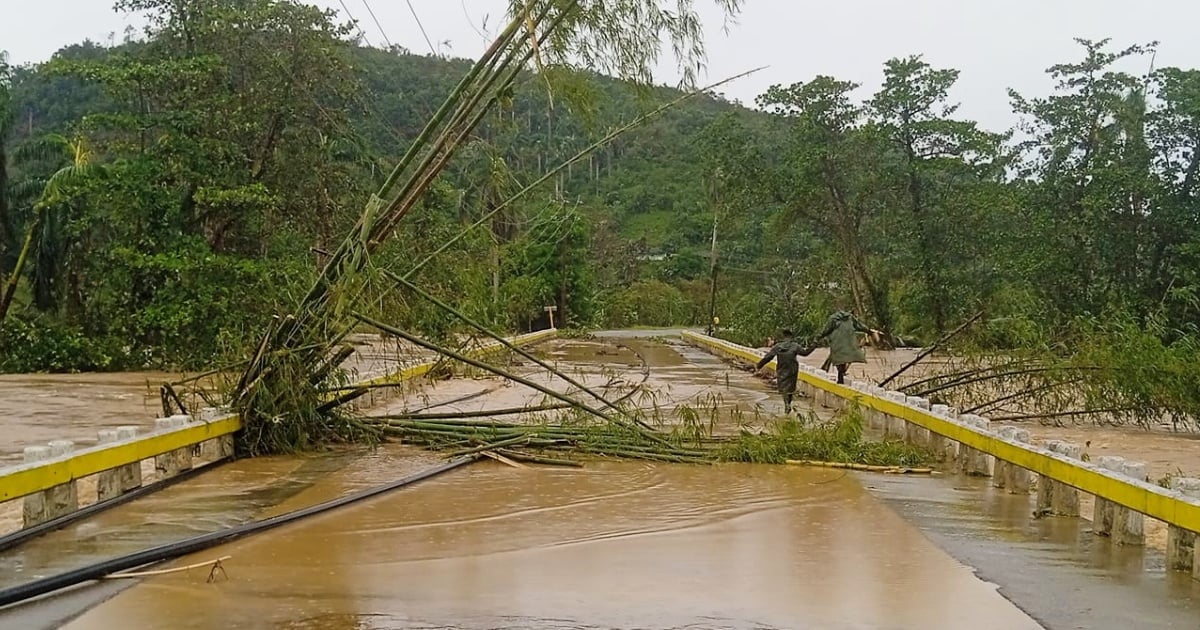Oscar Junior Guilarte Rodríguez, a Cuban living outside Guantánamo, has pledged a reward of 30,000 Cuban pesos for any information about his family who remain unreachable in La Tinta, a locality within Imías municipality, after the devastation caused by Hurricane Oscar. In a heartfelt Facebook post, Guilarte voiced his desperation, sharing that he has gone five days without any contact with his loved ones or neighbors.
"Please, if there is any path or means to reach La Tinta, I am willing to pay 30,000 pesos to anyone who can help me find out how my family and the rest of the community are doing," Guilarte wrote. Although he holds hope that his family is safe, the lack of communication has deeply troubled him.
Guantánamo's Struggle with Isolation
The province of Guantánamo, particularly areas in municipalities like Imías and San Antonio del Sur, has been severely isolated due to flooding from Hurricane Oscar, which battered the region before weakening to a tropical storm. The Cuban authorities reported that six individuals lost their lives in San Antonio del Sur due to the severe rains and destruction left in Oscar's wake. Among the deceased were three elderly people and a five-year-old girl.
Details of the Tragic Losses
According to the Facebook page “Miguel Noticias,” run by state journalist Miguel Reyes Mendoza, the names of those who perished are as follows:
- Francisco Colombia Matos, aged 92
- Esmeraldo Noa Fiffe, aged 82
- Antolino Areas Domínguez, aged 84
- Alexander Saben Matos, aged 42
- Irianni Labañino Domínguez, aged 31
- Liz Anyi Elías Labañino, aged 5
Cuban President Miguel Díaz-Canel expressed condolences for the victims and stated that rescue operations and damage assessments are ongoing in the most impacted areas, many of which are still underwater.
Communication Collapse Amid Crisis
The unfortunate overlap of Hurricane Oscar's path with the collapse of the National Electric System left hundreds of thousands of Cubans without crucial updates on the storm, raising alarm among civil society. This lack of information significantly heightened the risk for residents in the affected regions, highlighting yet another failure of the communist regime to adequately protect its citizens.
